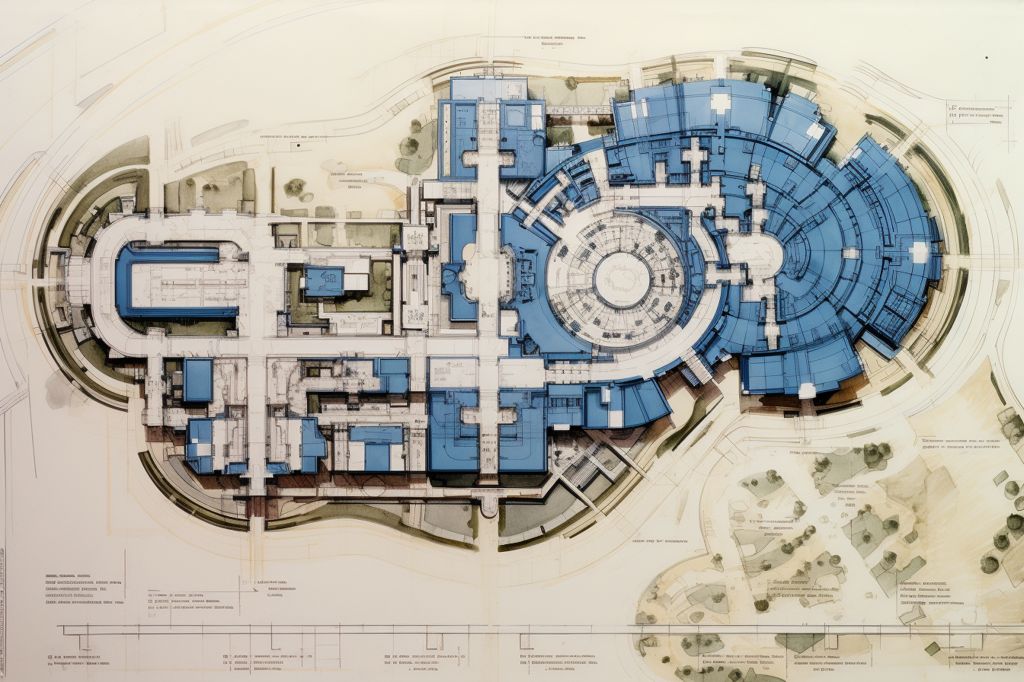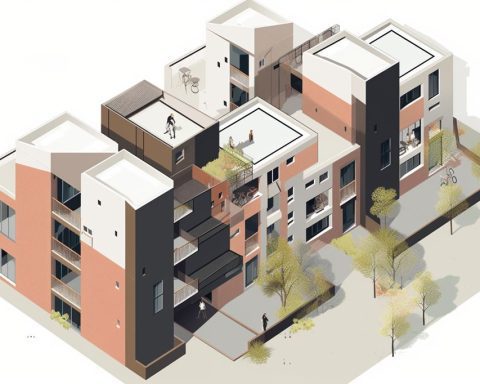A New Epoch in Healthcare: Cape Town’s State-of-the-Art Central Hospital
Cape Town embarks on an exciting new chapter in healthcare as the Western Cape Government (WCG) announces its visionary project to develop a cutting-edge central hospital. Unveiled at the recent Hospital Association of South Africa’s annual conference (HASA2023), this ambitious undertaking aims to elevate the city’s healthcare infrastructure and accommodate the needs of its expanding population.
The new central hospital will be strategically located next to the existing Tygerberg Hospital, heralding the beginning of a more extensive initiative to create three hospitals in the Western Cape. The central facility will be complemented by two more hospitals positioned along the Klipfontein Corridor near the former GF Jooste Hospital site and at Belhar, across from the UWC Campus. The estimated construction cost for the new central hospital is R5 billion, and it will be established through a public-private partnership (PPP) – a first for the WCG.
Thorpe Koorts, the WCG’s infrastructure director, emphasizes the significance of this endeavor: “This will be the biggest PPP that we have ever done, and bar the Gautrain, it may be the biggest one in the country.” The facility will feature between 600 and 900 beds, spanning across 18 hectares of land to the west of Tygerberg Hospital. It is worth noting that Tygerberg will remain in operation during the construction phase.
Overcoming Obstacles: Parlaying Maintenance Funds into a Sustainable Partnership
Tygerberg Hospital has a rich history, but it has surpassed its functional lifespan by approximately 20 years. A CSIR study conducted in the early 2000s revealed that the facility had become exceedingly costly to maintain. As a result, the WCG decided to reallocate the maintenance budget toward partnering with a private entity for funding and constructing the new hospital. The designated funds will be employed for unitary payments within a financially viable model.
The construction of the new central hospital is scheduled to begin in 2026 and conclude in 2031. After completion, the WCG will oversee a gradual transition of services from the old hospital to the new one. Primary and secondary services will be transferred to the new hospital in Belhar, whereas academic and tertiary services will be retained at the central hospital.
Koorts expounds on the rationale behind this reorganization: “The aim is to complete these two hospitals, the Central Hospital and the new Belhar Hospital, in close proximity to streamline the transition process. The reason behind restructuring services is to focus on pure academic services, given the presence of three higher learning institutions on site: Stellenbosch University Medical School, UWC, and CPUT.”
A Strategic Alliance: Transforming Healthcare Through Public-Private Partnerships
A thorough case study was performed for Tygerberg via PPP, adhering to national Treasury guidelines. The feasibility study demonstrated value for money and affordability, laying the groundwork for a transformative partnership. Koorts elucidates, “A private party will be procured to design, construct, finance, and maintain the building over 20 years. The private party will secure its financing for construction, with a capital contribution from the provincial treasury.” He adds, “Expenses will be recouped over 20 years through a unitary payment funded from the national budget.”
This formidable healthcare expansion project in the Western Cape illustrates the region’s unwavering dedication to improving healthcare quality and accessibility for its residents. As the new central hospital and its auxiliary facilities take shape, Cape Town will experience a remarkable metamorphosis that raises its healthcare standards to unprecedented levels.
As these trailblazing developments unfold, the future of healthcare in Cape Town seems more promising than ever before, establishing a new benchmark for the rest of the nation to emulate. As we commemorate the inception of this audacious project, we also look ahead to the innumerable lives that will be positively affected by this remarkable leap toward accessible, state-of-the-art healthcare for all.












